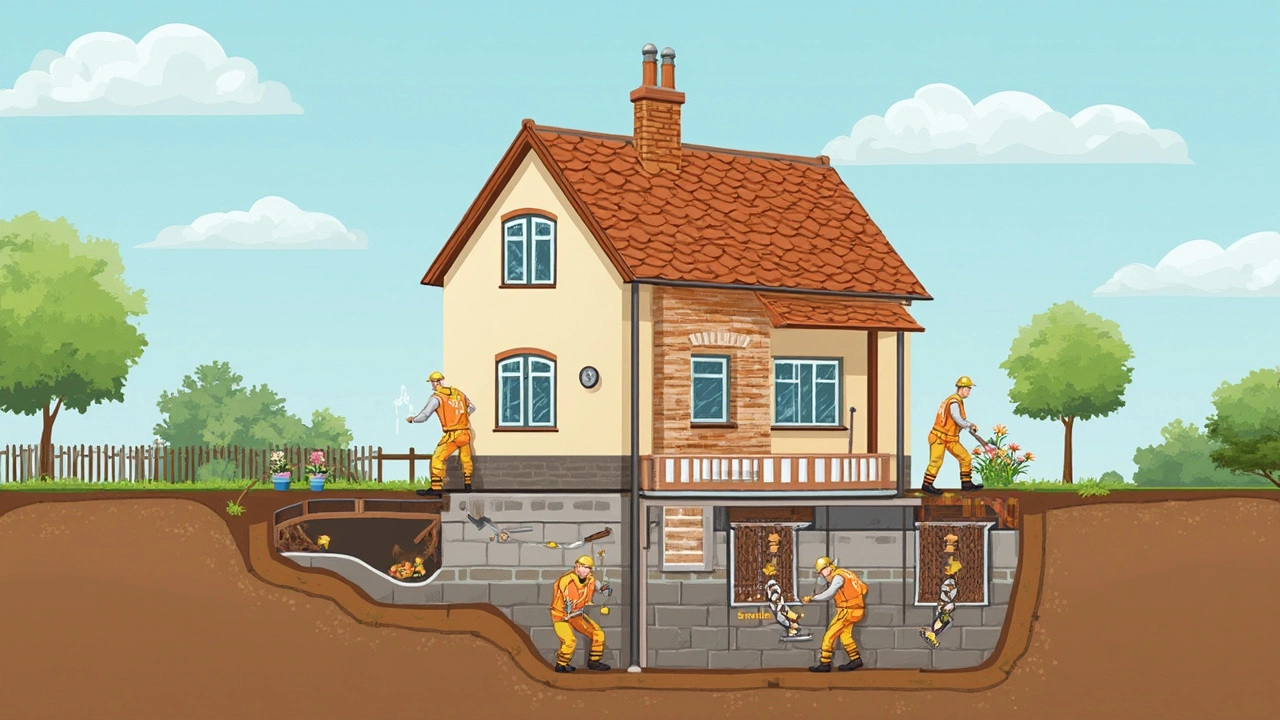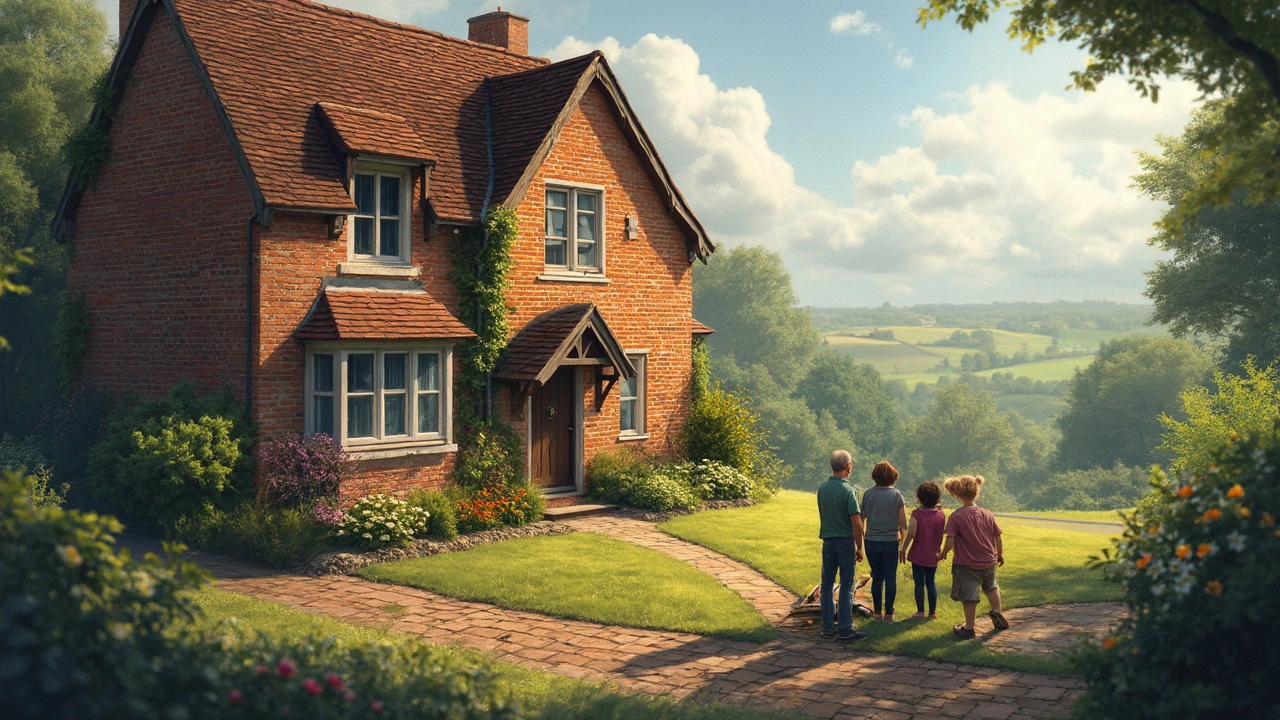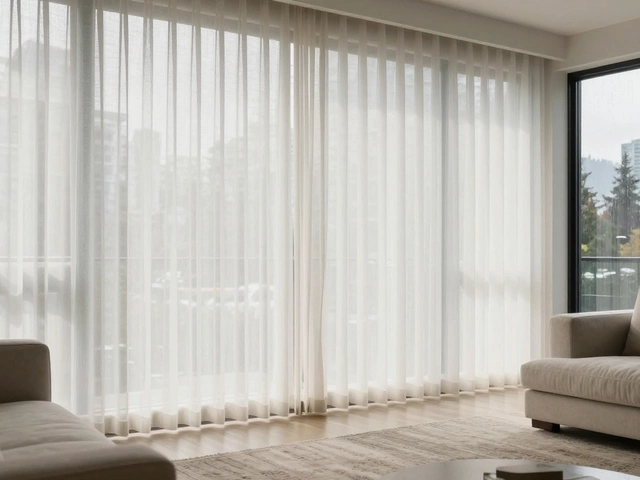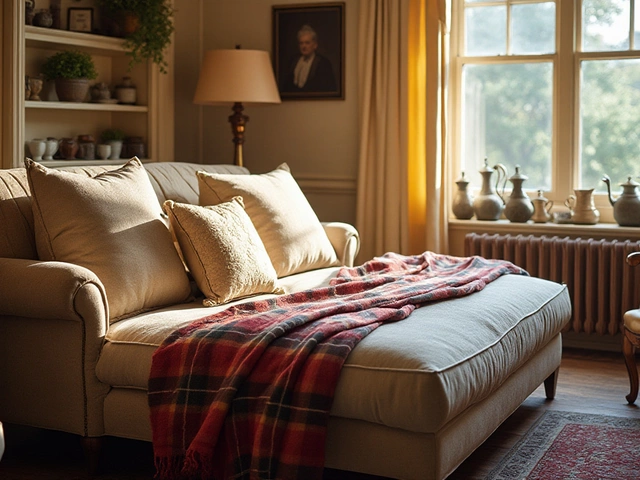So, you're staring at a crack in your wall and wondering if it's time to worry. This is a scene many homeowners face, often leading to sleepless nights. But is repairing your foundation really worth all the fuss and expense? Let's get into the nitty-gritty of it.
First, spotting the signs early is crucial. Things like uneven floors, stubborn doors or windows, and yes, those pesky wall cracks, are the usual suspects. Ignoring these can lead to bigger, more expensive problems down the line.
It's natural to think about the price tag. But here's a kicker: investing in foundation repairs not only stabilizes your house but can increase its market value. Think of it as a facelift that pays off when you sell, plus the peace of mind knowing your home is safe.
What about going the DIY route? While it might seem tempting to handle minor issues yourself, foundation repairs aren't your average weekend project. Hiring the right professional ensures the job is done correctly and safely.
Signs You Need Repairs
Wondering if it's time to address those foundation repairs? Let’s break down the common signs that your home might be waving a red flag. Catching these early can save you a ton of headache and money.
1. Cracks and Gaps
We've all seen them—cracks in the walls, gaps around windows and doors. They're more than an eyesore; they can signal foundation issues. Hairline cracks might be normal, but large ones, especially those that widen over time, deserve attention.
2. Sticky Doors and Windows
Struggling to open that bedroom door, or is the kitchen window jamming? Shifting foundation can misalign frames, making them difficult to operate. It's a subtle yet telling sign of trouble below.
3. Uneven Floors
If your floors feel like a bumpy ride, there might be foundation settling involved. A simple test? Use a ball to see if it rolls on its own. Uneven, sagging, or sloping floors aren't something to ignore.
4. Basement Moisture
Foundations can develop leaks allowing moisture in. A damp or musty smelling basement might indicate cracked, porous walls that need sealing or repairs.
5. Exterior Warning Signs
Don't just stick to the indoors; take a look outside too. Stair-step cracks in brickwork and separating siding are a major hint. Seriously, when was the last time you took a close look?
Noticing these signs doesn't mean immediate disaster, but it's a good cue to call in a professional. Home maintenance might be a hassle, but a strong foundation is key to keeping your place standing tall.
Cost vs. Value
When it comes to foundation repairs, the first thing you might think about is the cost. It might give you sticker shock initially, but let's break down why it could be worth every penny.
Spending $5,000 to $10,000 on home maintenance might sound like a lot, but consider the perks. A well-maintained foundation not only avoids future costly damage but also enhances your house's property value. When it's time to sell, potential buyers see a solid foundation as a huge bonus, which can significantly boost offers.
According to John Doe from Home Repair Magazine, "Investing in a foundation is like putting money in the bank—it preserves your home's value and longevity."
Understanding Cost Factors
What affects these costs, you ask? Here are a few major ones:
- Extent of damage: Minor cracks might be cheap to fix, but more severe issues will set you back more.
- Type of repair: Methods like underpinning with piers can be pricey, whereas cosmetic fixes are cheaper. Both have different impacts on long-term value.
- Contractor fees: Costs vary greatly by location and contractor, so get multiple quotes!
ROI and Peace of Mind
Think of it as risk management. Studies show homes with solid foundations appreciate in market value at a higher rate. Not just dollars, but your sanity. You'll sleep better knowing your house isn't collapsing on you.
Ultimately, the decision to repair a foundation is a personal one but considering the potential return, it's often a worthwhile call. After all, your home is probably your biggest investment, right?

DIY or Hire a Pro
We've all been there—tempted by a weekend project and a few YouTube tutorials. But when it comes to foundation repairs, taking a DIY approach might not be the best call. Here's why.
Understanding the Complexity
Foundation issues are like the iceberg under the Titanic—what's visible is only a small part of the problem. Structural assessments, soil checks, and the variety of repair methods required make it complex. This isn't just slapping on some cement and calling it a day.
The Cost of Mistakes
DIY fixes might save you dollars upfront, but a botched job could lead to costlier repairs down the line. Hiring a pro ensures you get quality work—and most importantly, guarantees. Professionals also bring in specialized tools and materials that aren't easily available at your local hardware store.
Safety Concerns
Working on foundation repairs can be hazardous. It's not just about potential structural collapses, but also dealing with heavy machinery and deep excavations. Let's be real, not everyone has the training or the patience to handle this safely.
When to Call a Pro
If you notice multiple symptoms, like large cracks over a quarter-inch wide, or if your doors won't shut properly, it's time to call in the experts. They can inspect and propose solutions tailored to your specific situation, maintaining your home's property value in the long run.
The Pros Know Best
Hiring professionals not only saves time but also ensures the right techniques are used. This is crucial for complex issues where incorrect repairs can worsen the problem or not address it at all.
Ultimately, while DIY projects have their place, foundation repairs are best left to the pros. After all, it's your home we're talking about.
Choosing the Right Repair Method
Picking the best solution for foundation repairs can feel like walking through a maze. Each problem calls for its own fix, so let’s talk about how you can decide what's right for your home.
Understanding the Issue
First off, know what you're dealing with. Is it a small crack from settling or something more serious like a sinking foundation? A professional evaluation is worth it because what seems like a cheap fix now might not last.
Common Repair Methods
Here are some of the most popular foundation repair techniques to consider:
- Slabjacking: A method where grout is pumped beneath your slab to lift it back into place. It's quick and doesn't involve major digging.
- Piering: This involves driving steel piers into deeper soil. It's often used for major foundation changes and is known for being reliable.
- Epoxy Injections: Ideal for fixing minor cracks, these injections can bond cracked concrete and prevent moisture issues.
Each method has its perks and quirks. Slabjacking is non-invasive and fairly inexpensive, while piering offers long-lasting stability but can be pretty costly.
Budget and Long-Term Benefits
Pricing varies a lot. Slabjacking can start at a few hundred bucks, whereas piering might be tens of thousands. Before making a decision, weigh the immediate costs against the long-term benefits like increased property value and peace of mind.
Using Technology
Don’t forget about the advantages of modern tech. Many companies use advanced tools to assess and fix foundation problems, providing more accurate estimates and better solutions.
Got questions? Don't hesitate to ask professionals about what’s best for your house. Whether it's something common like slabjacking or as involved as piering, choosing the right method means fewer headaches and a safer home.








